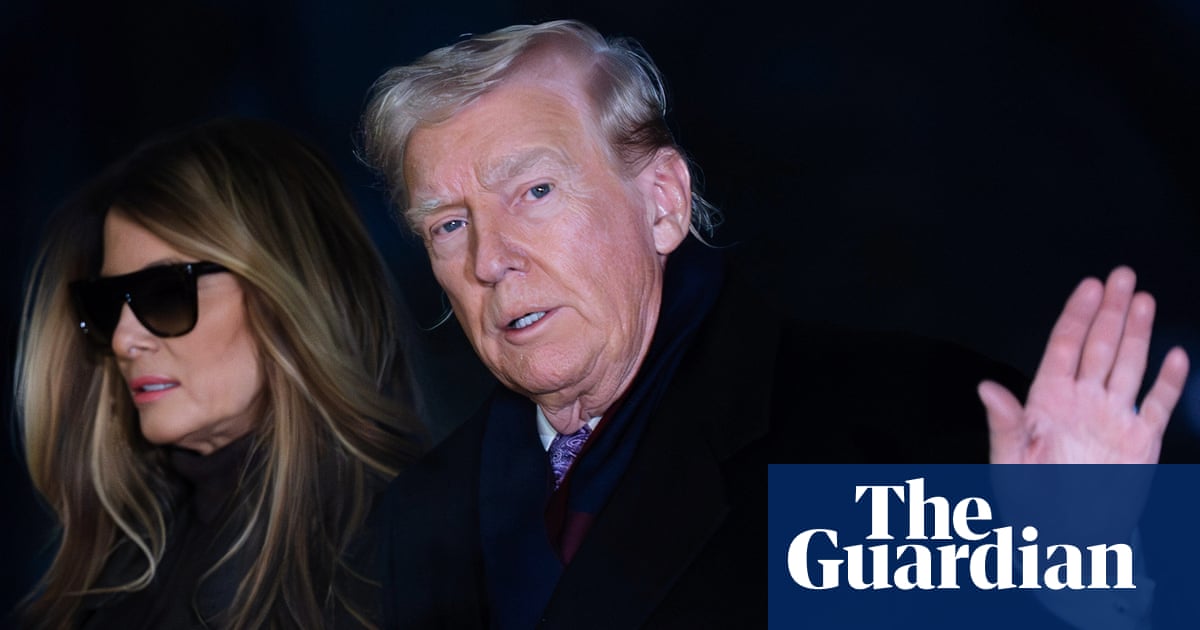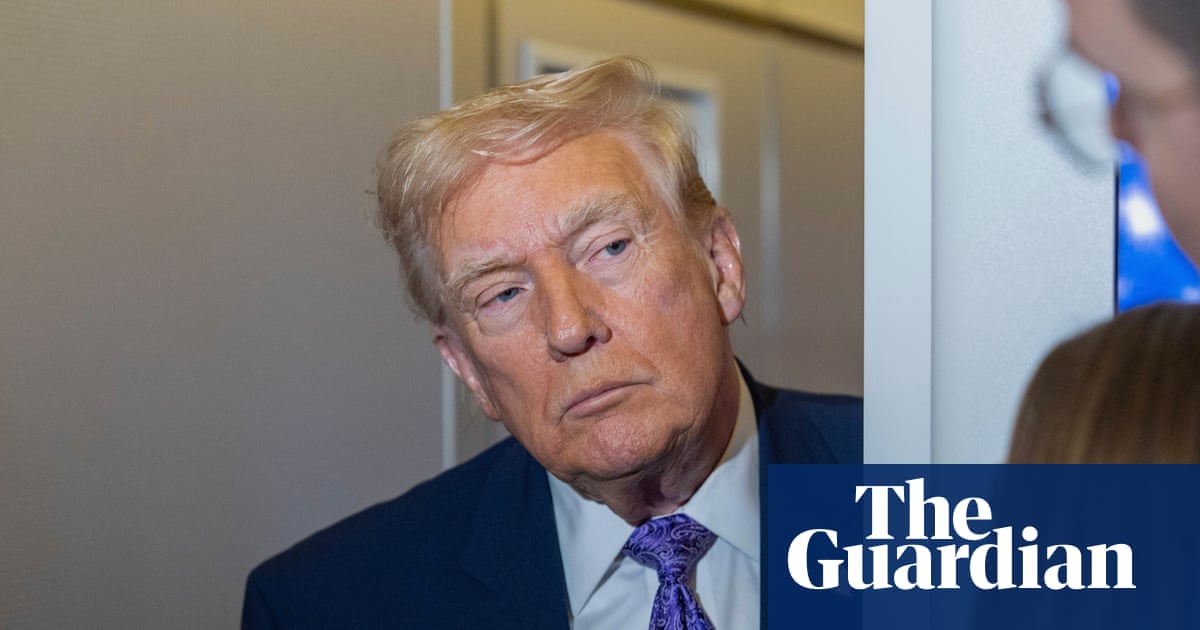Donald Trump faced arguably the biggest test so far of his contentious use of executive power at the US supreme court on Wednesday. The stakes could not be higher – “literally, LIFE OR DEATH” for the US, at least according to the president.
Trump’s signature, globe-rattling economic policy, his sweeping tariffs regime, was in the dock – specifically, the legal mechanism his administration has used to enforce it. And the man dispatched to defend the White House put forward a somewhat puzzling argument.
“These are regulatory tariffs,” D John Sauer, US solicitor general, assured the court. “They are not revenue-raising tariffs. The fact that they raise revenue is only incidental.”
It was a curious, and more than a little confusing, explanation – tariffs on goods from overseas might raise revenue, but are not revenue-raising – designed to counter rulings by lower courts that set the stage for this test before the highest court in the land.
A federal appeals court in Washington DC ruled in August that the International Emergency Economic Powers Act (IEEPA), a 1977 law Trump invoked to impose many of his tariffs, did not grant “the power to tax” to the president.
Congress is granted sole authority under the constitution to levy taxes. Trump bypassed Congress – lawfully, his aides insist – to drive through a policy estimated to equate to the largest tax hike since 1993.
Thus, on Wednesday morning, the administration appeared to argue before the supreme court that these tariffs – taxes paid by myriad US companies on imported products – were not really taxes at all.
Critics are not having it. “Anybody can look up in the dictionary,” Maria Cantwell, Democratic senator from Washington, told the Guardian. “Tariffs are an import tax, plain and simple. I would assume the administration understands that.”
“I actually am surprised that it was so lacking,” Cantwell added, of the administration’s case.
The court did not appear persuaded, either. “You want to say tariffs are not taxes,” said the liberal justice Sonia Sotomayor. “But that’s exactly what they are.”
Some conservatives on the bench also sounded skeptical. “The vehicle is the imposition of taxes on Americans, and that has always been a core power of Congress,” said the chief justice John Roberts.
The administration’s argument that the fact tariffs raise money is “only incidental” might be more persuasive if the president spent less time boasting about the amount of money they raised. “My tariffs are bringing in hundreds of billions of dollars,” Trump declared in a speech hours after the hearing.
The president has argued – in typically binary terms – that the fate of his flagship economic strategy is aligned with that of the nation. But there are many business owners in the US, grappling with the abrupt imposition of steep tariffs, who believe the fate of their companies has been jeopardized by this regime.
While official statistics (at least, those published before the government shutdown) have shown persisting inflation and a stalling jobs market, Trump continues to erroneously claim his agenda is producing stellar results. “Our Economy is BOOMING, and Costs are coming way down,” he wrote on social media during Wednesday’s hearing.
It is ultimately down to voters, as some did on Tuesday, to deliver their verdict on Trump’s agenda. For now, a handful of small firms, together with a dozen states, have joined forces to challenge the way in which he has rammed it through.
“We think that this case is really about executive overreach,” said Stephen Woldenberg, senior vice-president of sales at Learning Resources, a toy company based near Chicago that sued the administration to invalidate Trump’s tariffs as exceeding his authority.
At the heart of this case is really a “broader issue”, according to Woldenberg, of who sets taxes – and how – across the US. “We weren’t really willing to let politicians, and really a single politician, decide our fate,” he said.
That fate is now in the hands of a court Trump has shaped. The justices have pledged to fast-track their decision. On Wednesday, at least, most sounded unpersuaded by the administration’s defense.

 German (DE)
German (DE)  English (US)
English (US)  Spanish (ES)
Spanish (ES)  French (FR)
French (FR)  Hindi (IN)
Hindi (IN)  Italian (IT)
Italian (IT)  Russian (RU)
Russian (RU)  3 weeks ago
3 weeks ago
























Comments